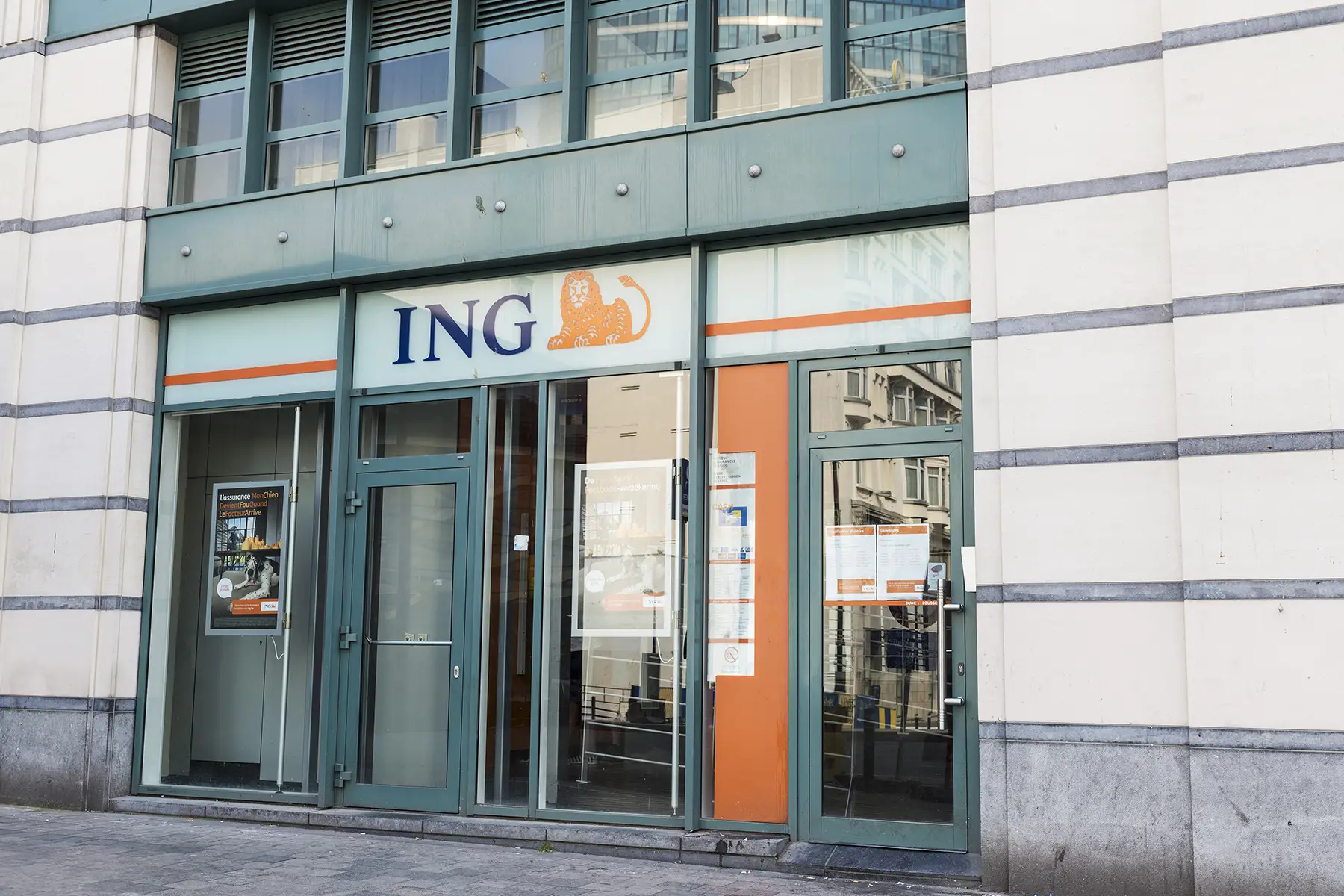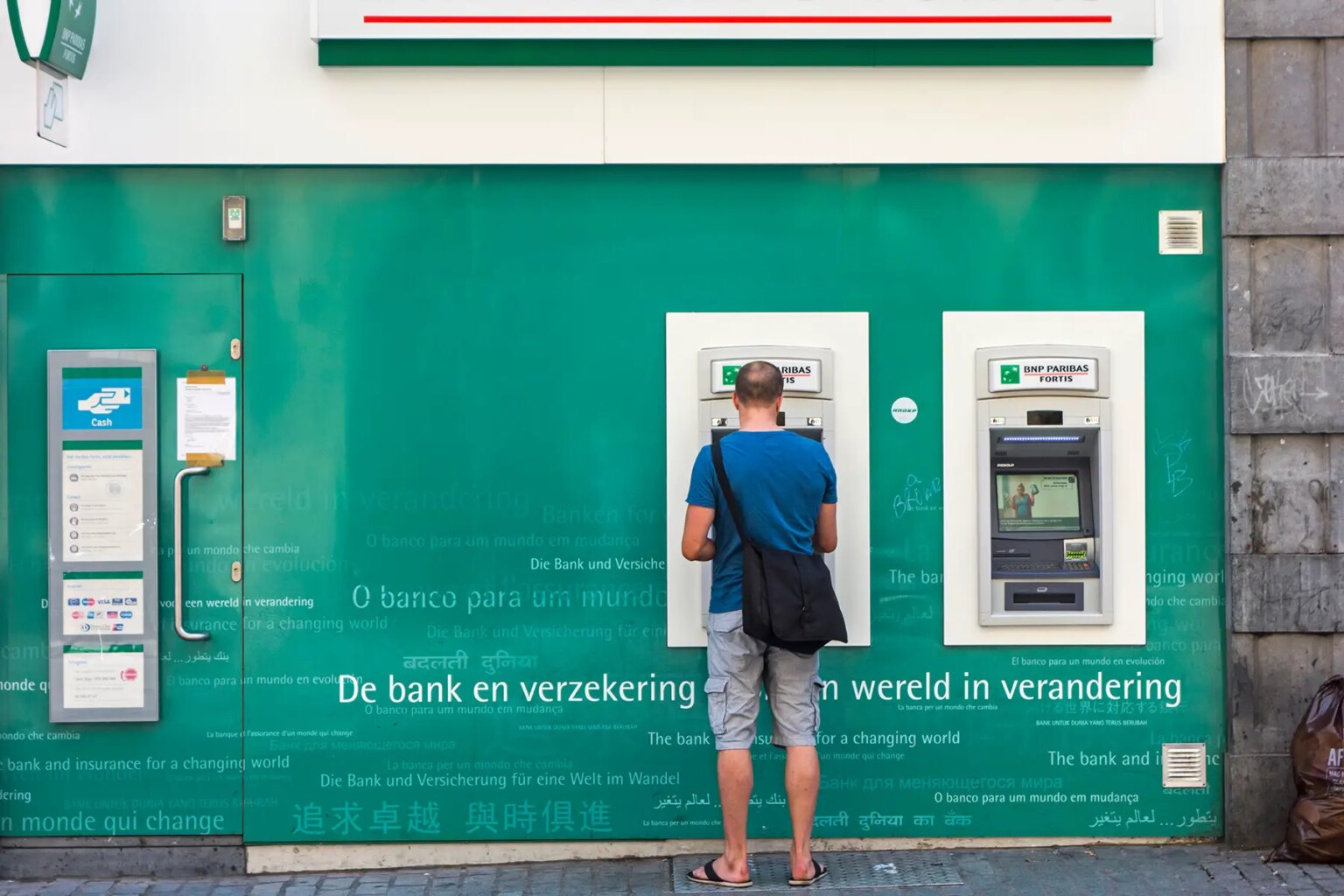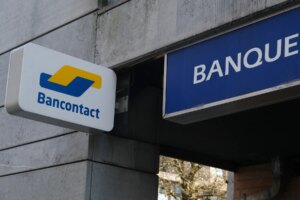When moving to Belgium, it’s important to open a bank account to help you manage your bills, everyday spending, and rent or mortgage payments. In this helpful guide, Salvatore Orlando, Head of Expatriates at BNP Paribas Fortis, explains the process of how foreigners can set up their banking in Belgium and open a Belgian bank account either online, in person, or as a non-resident.
The guide includes the following sections:
- Banking in Belgium
- Do you need a bank account in Belgium?
- Types of bank accounts in Belgium
- Bank accounts in Belgium
- Choosing a bank account in Belgium
- How to open a Belgian bank account as an expat
- Banking services in Belgium
- Managing your Belgian bank account
- Changing banks or closing a bank account in Belgium
- Useful resources
ING
Trust ING for your banking in Belgium. One of the country’s big 4 banks, they provide a wide range of services, including bank accounts, savings, loans, investments, insurance, and more. With tools to compare and calculate your options, they help you make the right financial decisions. Visit ING online and let your money go further.
Banking in Belgium
Belgium boasts a modern, sophisticated, and digitized banking system, so opening a bank account when moving there is a relatively straightforward process. Belgium was an early pioneer of the idea of a cash-free society, and in recent decades has been innovative in implementing automated payment processes.
Today, many banks in Belgium perform transactions electronically and automatically, making managing your money and sending cash and paying bills simple. In addition, online banking and smartphone apps are now the norm, meaning the vast majority of customers have access to their accounts at their fingertips.
You can find out more about the banking system in Belgium in our full guide to banking in Belgium.
Do you need a bank account in Belgium?
There are many reasons to open a bank account when moving to Belgium. For example, an account will help you avoid the fees and poor exchange rates associated with making day-to-day payments and cash withdrawals with a foreign account. It is also easier to have your Belgian salary paid into a local account, from which you can set up your direct debits for things like home utilities. You may also find that a Belgian bank account makes it easier to apply for mortgages in Belgium.

Types of bank accounts in Belgium
There are a range of current accounts available for expats moving to Belgium. These include the following:
Basic current account
Some banks offer basic accounts, which may be available without a monthly fee. These accounts will generally allow you access to online and in-branch banking, but may charge small fees for cash withdrawals, payments, and extra cards. These accounts don’t usually include linked credit cards.
Premium current account
Premium accounts usually allow free cash withdrawals and card replacements, albeit for a monthly fee. Some will enable you to add an extra cardholder for free, will allow transfers in other currencies, and will let you add a credit card (sometimes for an extra fee).
Bundled/packaged account
Some banks offer more wide-ranging accounts (known as packaged accounts in some countries) that include extras such as credit cards and insurance. These products might require you to pay in a minimum amount each month, and fees tend to be higher.
Savings accounts
Savings accounts come in all shapes and sizes, from fixed accounts that require you to lock up your savings for a set number of years, to instant-access accounts, where you can withdraw cash within 24 hours. Some banks offer products for people saving for specific milestones, such as buying a home or for their child to go to university.
Offshore accounts
Expats living in Belgium may find that opening offshore bank accounts is the best way to manage their finances. Having an offshore account is particularly helpful for anyone who works abroad, spends a lot of time in more than one country, or frequently transfers money between countries. Offshore accounts are located outside the holder’s country of residence and usually offer financial and legal advantages over domestic banking arrangements.
Accounts are often available in multiple currencies, which can be more convenient for those making or receiving payments in different currencies. In addition, more complex foreign exchange features may be available, such as being able to fix currency prices for up to a year in advance, which can remove the uncertainty of international finances. Furthermore, many offer distinct advantages such as a wider range of cross-border services and lower taxation on funds.
Bank accounts in Belgium
There are around 100 banks operating in Belgium, including many foreign banks. With the full array of financial institutions and banks, it’s possible to find one tailored to your needs, with English-speaking services, cheaper international money transfers, or online trading and investment tools.

Finding the best bank in Belgium will depend on the services you are looking for, so it’s important to shop around. As part of the streamlining of physical banks, some specialist services in bank branches are now only available by appointment.
Some major banks in Belgium include:
BNP Paribas Fortis
- More than 700 branches and 3,700 ATMs across Belgium.
- Website in French, Dutch, German, and English.
- Comfort Pack offers up to three current accounts for a family for €3 a month. Premium Pack allows borrowers to claim back the monthly €7 charge if they meet a set of terms (such as minimum deposits).
- Offers a free welcome pack bank account for under-18s, which includes a rechargeable bank card from the age of 15.
ING Bank
- Around 700 branches in Belgium, though this number has dropped in recent years.
- Website in French, Dutch, and English.
- Easy access Lion Account is available without a fee.
- Classic Green Account costs €40 a year.
- Offers various savings options, including special accounts for saving for a home and saving for your child’s future.
- Visit the ING website to find out more information.
KBC
- Made 66 of its branches employee-free in 2018, allowing customers to make transfers and withdraw cash at self-service terminals.
- Website in French, Dutch, German, and English.
- Offers two main current accounts – basic and plus. A Basic account is offered free of charge, while a Plus account costs €2 a month.
- Young person’s account is available free for people aged 24 or younger.
- Visit the KBC website for more information.
International banks in Belgium
Around eight in ten banks in Belgium are foreign-owned. These banks have similar services and opening hours and are expat-friendly. International banks in Belgium include:
- ABN-AMRO
- Bank of America
- BBVA
- Citibank Europe
- Commerzbank
- Deutsche Bank
- HSBC
- Rabobank
- Santander
Innovation in Belgian banking
Mobile banks allow you to access all your Belgian bank accounts in just five minutes using nothing more than your mobile phone. You get real-time access to your account, instant payments, and dedicated customer support available in many languages such as English, Dutch, German, Italian, and Spanish. Popular mobile banks in Belgium include:
Banks in Belgium have come together to allow customers to use Zoomit, a free internet and mobile banking service that sends any important documents, such as invoices, credit notes, and pay slips to your bank account where you can manage everything in one place, removing the need for paperwork and allowing for quick online payment and reminders for overdue bills.
Discover how the Belgian banking landscape could look in years to come with our article on the future of banking.
Choosing a bank account in Belgium
When weighing up which bank to choose, you will need to consider a variety of things. This includes the location of your nearest bank and how you can manage your account. The majority of accounts in Belgium are fee-paying, so you should shop around to get the best deal.
The costs for current accounts in Belgium vary between banks, and depend on the package you choose. Banks will generally offer free basic accounts and paid-for accounts which can include extra features such as the ability to bank in other currencies, or extra bonuses such as cashback on purchases.
Some banks will charge a fee of a €5-6 a month for premium accounts, while others operate with annual fees instead. As a new customer, you might be able to get an introductory fee-free deal for the first year.
Many banks also provide discounts to younger customers. For example, parents are able to open accounts for their children for free and some banks offer incentives to encourage them to do so. Adult customers can also get free accounts from some providers up to the age of 28, as banks look to attract long-term account holders.
You can find out more in our guide to banking in Belgium.
How to open a Belgian bank account as an expat
Opening an account is an easy process. Some banks permit you to open a bank account online; you simply submit an online request and the bank will send you the required forms and information. You can also walk into any branch and open a Belgian bank account in person.
To open a bank account in Belgium, you need to show proof of identity (passport or ID card) and proof of your address.
Opening a Belgian bank account from abroad
Many banks accept non-resident bank accounts in Belgium, so it is possible to set up an account before moving to Belgium. Another option is to open a bank account with an international bank that has branches in both your home country and where you plan to move abroad.
To open an account before you reach Belgium, you can apply online with your bank of choice. Then when you arrive, you will need to visit a branch with proof of identity (for example a passport or ID card) and proof of legal address (in your home country or Belgium). Some banks will also require you to provide proof of residence once your permit has been issued.
Opening a Belgian bank account if you are self-employed
Opening a business bank account is part of the process of setting up a business in Belgium. If you are a self-employed person living in Belgium you must open a bank account for your business use only, separate from your personal bank account, regardless of whether you are setting up as a self-employed individual or a company.
You should put your account number on all your business documents. Specialist accounts for self-employed people usually include features such as the ability to have multiple account holders and make transactions in a range of currencies.
Banking services in Belgium
Credit and debit cards are common in Belgium and are widely accepted. Cheques are becoming obsolete and usually come with a fee. ATM machines are widely available, and although Belgian bank customers were previously required to only use their bank’s ATMs, this is no longer the case.
The most common debit card in Belgium is known as the Mister Cash/Bancontact card. It is a chip card that has a four-digit PIN code. You can use the Bancontact to withdraw cash from ATMs or pay directly out of your account using your PIN code. Some banks also provide smartphone or tablet payment options.
Most types of credit card are accepted to varying degrees; fees range up to €50 a year depending on the card type or if it is included in your banking package. Other major international credit cards can also be obtained and used in Belgium.
International money transfers in Belgium
Moving money from your account in Belgium to a foreign account may result in a fee from both banks.
The Single Euro Payment Area (SEPA) initiative of the European Union makes transfers of the euro currency within SEPA-member countries easier, faster and cheaper – in most cases free or for the cost of a local transfer. Transfers within SEPA countries (27 EU countries plus Norway, Iceland, Liechtenstein, Switzerland, Andorra, Monaco, and San Marino) take one to two days, whereas pre-SEPA the process could take much longer.
SEPA transfers require you to provide the IBAN (international bank account number of the recipient) and the BIC (bank identifier code) of the recipient’s bank (this is also called a SWIFT code).
SEPA also made it possible to use your debit card to make euro-based payments in another SEPA country, just as you would do at home. Also under SEPA, if you have a bank account in any Eurozone country, you can continue to use it to receive your salary, even if you reside in another Eurozone country.
For transfers to non-SEPA countries or in a currency other than euro, you also need to provide the IBAN and BIC as well as the address of the bank to which you are making the transfer. Most online banking systems enable you to make transfers from your computer.
The European Union also has deposit guarantee schemes in place that typically protect investments and deposits up to €100,000 within the Eurozone in the event a bank fails.
For international money transfers, there are alternative solutions to banks that could prove cheaper and more convenient, such as:
You can also use online comparison tools to save on fees, obtain the best exchange rates and find the cheapest option for your international money transfers.
Paying bills from your Belgian bank account
Standing order payments (Dutch: bestendige opdracht, French: ordre permanent) can be set up for regular payments of a fixed amount, like rent or mortgage repayments. You can also use it to build up a savings account by automatic transfer of a fixed amount from your current account.
Direct debit (Dutch: domiciliering, French: domiciliation) is the most efficient way to pay regular bills, where you can authorize companies to debit money from your Belgian bank account before a deadline, such as for utility bills.
Managing your Belgian bank account
Belgium is at the forefront of banking technology, so you needn’t worry about not being able to manage your bank account online and on your phone through an app.
All banks provide online services that allow you to make payments and transfers, while some will also allow you to freeze your card if you lose it. Online banking security is always developing, with fingerprint technology now available from some banks.
For some specialized transactions, you may still need to visit a branch. Opening hours for banks are typically 9:00 to 16:00, and extended to 19:00 on appointment. Some bank branches will close for a period over lunchtime before reopening in the afternoon. Most banks provide a location finder on their website to find your nearest branch.
ATMs tend to be located inside of banks, and some institutions will lock their doors to non-customers once they close. In this instance, you might need to use your bank card to get inside and use the ATM.
You can find more information in our guide to banking in Belgium, or check Expatica’s listings of financial services in Belgium.
Changing banks or closing a bank account in Belgium
It is very easy to switch bank accounts in Belgium, using the bank account switching service, to which many banks have subscribed. To switch accounts, you simply do the following:
- Open a new current account with the new bank, either online or in branch;
- Inform the new bank that you plan to use the switching service. You will then be given a request form;
- Fill in, sign, and return the form to the new bank.
On the form, you will need to specify the services you need, such as transferring all of your payments and direct debits to the new account or just moving your balance across and nothing else. The bank account switching service takes around 10 working days.
If you are just looking to close your account, you can do this by contacting your bank.
Useful resources
- Financial Services and Markets Authority – the regulator for banking services in Belgium



